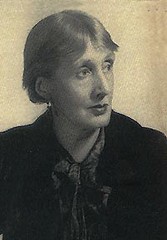In A Room of One’s Own, Virginia Woolf asks a series of questions: Why have women traditionally written so little when compared with men? What needs to change in women’s lives in order to make writing possible? And why have women been so absent from literary history?
The answer, she suggests, lies in the conditions of women’s lives. Women raise children, have not traditionally inherited wealth, and have had fewer opportunities to make the money that would buy time for writing. Women rarely have partners who cook and clean and carry (or share equally) the burden of home life. Our lives have long been and largely continue to be fractured, shared between child care, kitchen duties, family obligations.
To write, what a woman needs most is private space (a room of one’s own), money and connected time (that only money can buy).
Woolf wrote her thoughts on women and writing in the 1920s, a time before all the ostensibly labour-saving devices like washing machines, slow cookers, microwave ovens, dishwashers, and so on. Most North American women now work outside the home, and most can probably find a corner in their houses to call their own. Problem solved? No. Despite all this, we still find ourselves fractured and split.
At least I do.
The first year and a half of my son’s life – he’s now three – shattered my understanding of myself as a writer.
They say nothing prepares you for the realities of having a child: cliché, yes, but true. Although, on some level, I must have understood that my writing would suffer after my son’s birth, I still wasn’t prepared when, for the first time in my life, the thing that made me who I was became impossible to do. Writing suddenly found its place at the bottom of a long list of other priorities, and fatigue only made matters worse.
Only once my son grew, and after making a series of decisions about child care, home care, and food supply did I begin to relocate as sense of my former identity.
In “Professions for Women” Woolf calls this process of carving out writing time, “killing the Angel in the House.” Who is this Angel? She is sympathetic, charming, unselfish, family-focused, self-sacrificing, undesiring, compliant and generous. She is the good wife, mother and hostess. She is Martha Stewart, June Cleaver and Betty Crocker combined.
“Had I not killed her,” Woolf writes, “she would have killed me. She would have plucked the heart out of my writing” (Woolf, Women and Writing 59).
I’ve been back to writing for more than a year, and for now, I think I’ve successfully killed my Angel.
Do you have an Angel to kill?
[Photo: Man Ray’s Virginia Woolf by A Room With a View]



